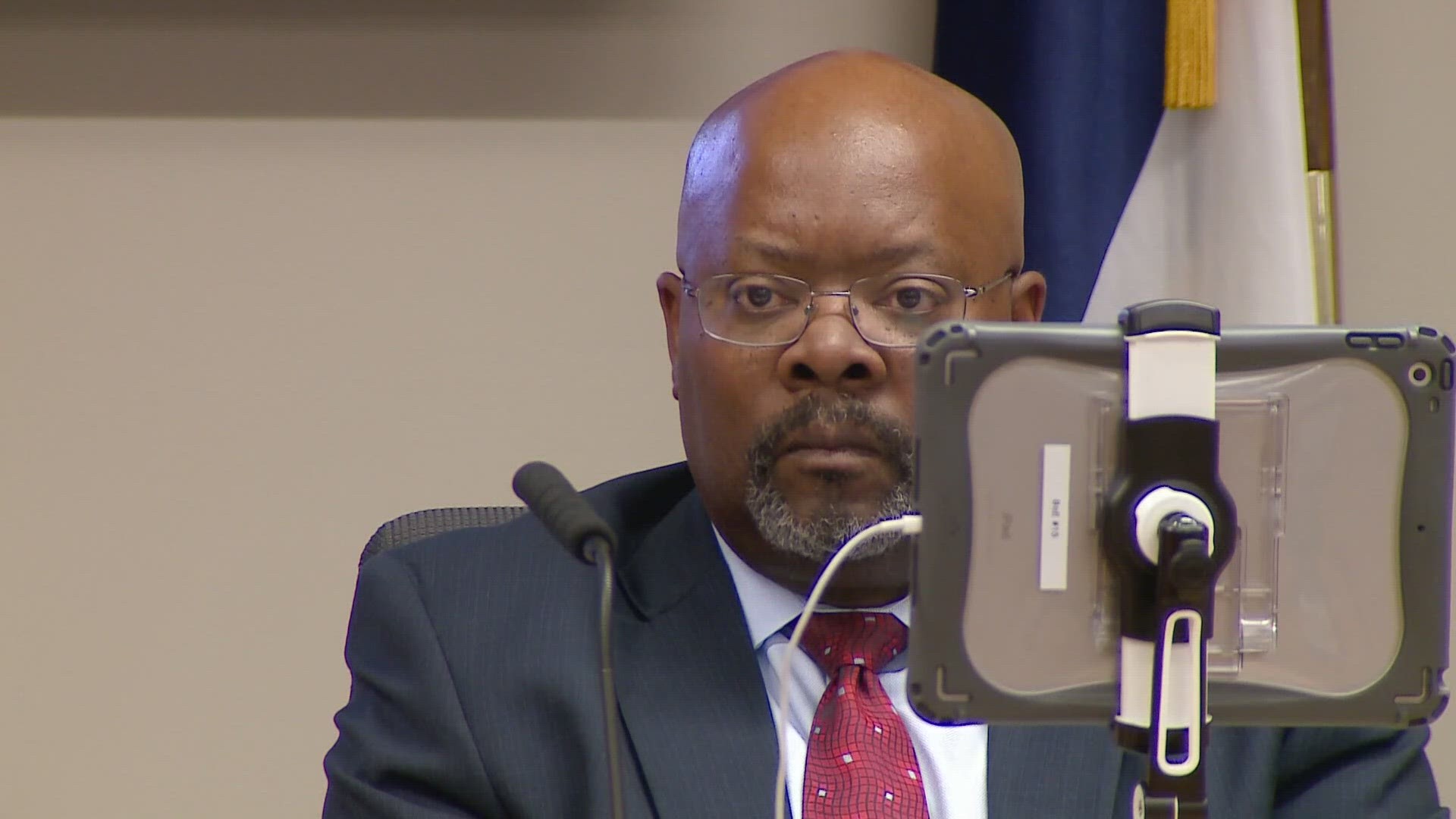AURORA, Colo. — After a closed-door meeting Wednesday, the Aurora school board announced it would take no action on a complaint that it pushed out the district's longtime superintendent because he was not "Black enough" – despite a district-hired investigator's finding that the complaint was likely true.
Superintendent Rico Munn, who is Black, stepped down in December and negotiated an agreement that prohibits him from suing the district over the allegations, which he made in an undated complaint as he left Aurora Public Schools.
"Board members have questioned my 'Blackness' and indicated that I should execute district policy in a manner that is centered on my 'Blackness' rather than on board policy or the prevailing law," Munn wrote.
He said district policy instructed him to work to recruit, retain and develop educators of color -- but that certain members of the school board expected him to focus on Black staff only.
An initial fact-finding investigation by a district designee found the claims "largely unsubstantiated," based in part on the denials of the board members Munn fingered in his complaint.
However multiple witnesses cited in the report said certain board members believed that Munn "was not Black enough" to execute board policies, a second district investigator, Doug Hamill, found. As a result, Hamill concluded, Munn was "constructively discharged from his position as superintendent because of his race."
Hamill cited testimony from a number of board members who said they were not surprised by the allegations in Munn's complaint. He also cited testimony from the board's consultant, AJ Crabill, a Black man, who said Munn's "Black card" was "constantly questioned."
News of the complaint and the investigations was first reported by the Aurora Sentinel.
Hamill recommended the district publicly reprimand board members Stephanie Mason and Tramaine Duncan, who are both Black, for their actions against Munn and make them ineligible to hold board offices (president, vice president, etc.) for the remainder of their terms.
In addition, the investigator said public notice of the investigator should be published on the district's website and board members should undergo equal employment opportunity training.
Instead, following an executive session Wednesday night, the board made a motion to not take any action on the report. No member spoke publicly about the decision.
Munn declined an interview request from 9NEWS, citing a family medical issue. In a statement he said he was proud of the team he led at APS and "We must fight against any person or ideology that positions success as a zero sum game. In a just world there is room for all of us.”
"No one has the right to tell anyone that they’re not Black enough," said Maisha Fields, a community leader who works with APS students and who was involved in hiring Munn.
She said some on the board and in the community were disappointed with the pace at which Munn was working to resolve educational inequities.
"We all want to see an end to racism," she said. "But it does take time. It does take time to change a system and to get everyone trained and to work with the students and the school board and your administrators."
9NEWS Race and Culture contributor Shay Johnson said calling into question a person's "Blackness" is not right – and detracts from reasonable critiques of Munn's performance in office.
"I think we should say what are your intentions? Are you really an advocate for the community? How can we trust our children in your hands and what are you doing to make sure you close this educational gap? I think we’re allowed to ask those questions," she said.
Johnson and Tameka Brigham with the NAACP of Denver both said community members raised concerns about Munn's commitment to Black youth and educators.
"There’s been a lot of community conversation around his intentions with his actions," Johnson said.
Fields disagreed and said the tone of the community discussion was ultimately hurting the students in the district. "This is telling our children that it’s OK to call people names. That it’s OK to define someone purely by the color of their skin," she said.
SUGGESTED VIDEOS: Education stories from 9NEWS

